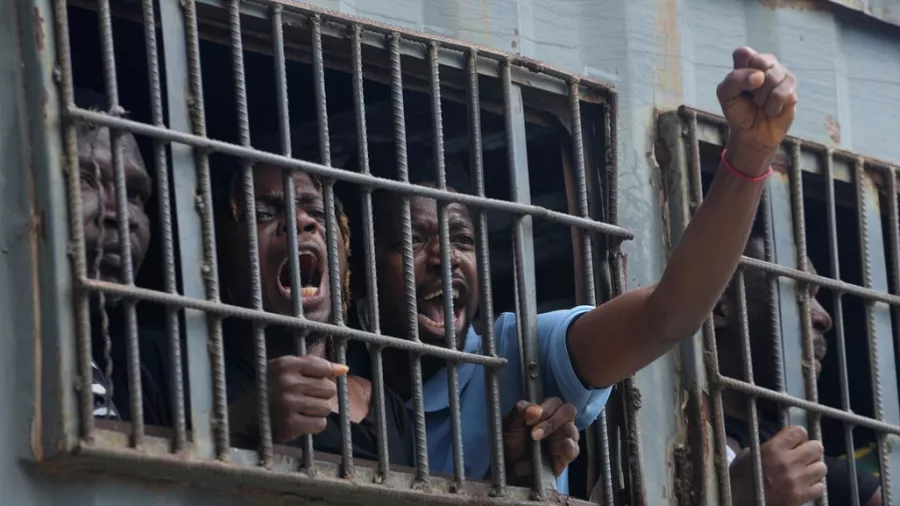At least 22 arrested at #EndSARS memorial protest freed by Lagos police
3 min read
Protesters are detained by police officers following a planned demonstration at Lekki Toll Plaza, in Lagos Nigeria, Sunday, Oct. 20, 2024

Protesters are detained by police officers following a planned demonstration at Lekki Toll Plaza, in Lagos Nigeria, Sunday, Oct. 20, 2024
In a recent development, the Lagos State police command has released at least 22 individuals who were arrested during the #EndSARS memorial protest held on Sunday. The arrests occurred at the Lekki tollgate, a significant site associated with the 2020 protests against police brutality in Nigeria.
The memorial aimed to honor those who lost their lives during the protests against the now-disbanded Special Anti-Robbery Squad (SARS), a unit notorious for its abusive practices. Participants gathered around 8:30 a.m. to call for the full implementation of recommendations made by judicial panels that were established following the protests.
The atmosphere was tense as police intervened to disperse the crowd, which had gathered in remembrance of the victims of police violence. Four years ago, the #EndSARS movement gained widespread attention, mobilizing thousands across the country in a powerful outcry against systemic abuses by security forces.
An Amnesty International report has documented the tragic events of 2020, stating that at least 12 protesters were killed at the Lekki tollgate when Nigerian security forces opened fire on them. This incident became a pivotal moment in Nigeria’s struggle against police brutality, galvanizing activists and civil society organizations to demand accountability and reform.
On the day of the memorial, protesters faced significant resistance from law enforcement. Security forces obstructed their plans to march through the tollgate and detained several demonstrators, including the event’s organizer. These actions have drawn criticism from human rights advocates who argue that the right to peaceful assembly and expression is being undermined.
The #EndSARS protests were not just a response to specific incidents of police violence but also highlighted broader issues of governance, corruption, and systemic injustices faced by many Nigerians. The movement’s impact has resonated far beyond its initial protests, sparking conversations about police reform, accountability, and the rights of citizens.
In the wake of the protests, judicial panels were established in various states to investigate allegations of police misconduct. However, many activists and families of victims feel that progress has been slow, and the demands for justice and accountability remain largely unmet. The recent arrests during the memorial protest underscore ongoing tensions between the government and civil society, as many activists continue to push for change in the face of opposition.
The release of the detained protesters is a small victory for those advocating for human rights and accountability in Nigeria. However, the circumstances surrounding their arrests raise questions about the government’s commitment to respecting the right to peaceful protest. As the anniversary of the #EndSARS protests approaches, the need for dialogue, transparency, and genuine reform is more pressing than ever.
As Nigeria grapples with these issues, the memories of those who lost their lives during the protests serve as a constant reminder of the urgent need for change. Activists and citizens alike are determined to ensure that their voices are heard and that the demand for justice continues to resonate.
The #EndSARS memorials are not merely commemorations; they are calls to action. They represent the collective grief and anger of a society that refuses to accept injustice and impunity. Moving forward, it is essential for the government to engage with citizens and address their concerns to foster a more just and equitable society.
The legacy of the #EndSARS movement will continue to shape Nigeria’s social and political landscape as more individuals become involved in the fight against police brutality and human rights abuses. With ongoing protests and activism, there is hope that meaningful change can still be achieved in the pursuit of justice for all.